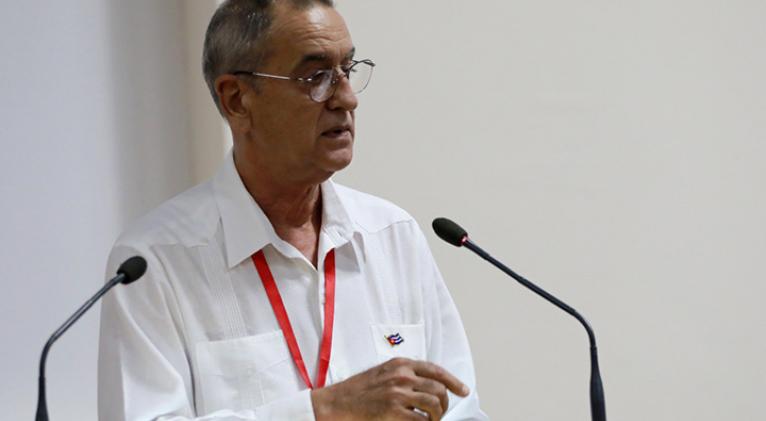Cuba Aims to Boost Foreign Currency Earnings Amid U.S. Blockade
especiales

Facing the ongoing challenge of countering the impact of the U.S. embargo, the primary obstacle to the country's development, Cuba plans to prioritize increasing foreign currency earnings through all available means in the second half of 2025.
During a meeting with lawmakers from the Economic Affairs Commission, Joaquín Alonso Vázquez, Cuba’s Minister of Economy and Planning, outlined the country’s economic performance so far this year. The session was attended by Miguel Díaz-Canel, First Secretary of the Communist Party of Cuba and President of the Republic.
Alonso Vázquez emphasized that boosting foreign currency inflows is a top priority, as the lack of financial resources has hindered the purchase of food, fuel, and other essential imports this year. He provided a detailed preview of first-half economic results, with a full report to be presented Wednesday at the Fifth Session of the National Assembly of People’s Power in Havana.
Other key objectives for the remainder of 2025 include advancing the recovery of the National Electric System (SEN) and increasing the use of renewable energy sources. The government will also focus on macroeconomic stabilization measures, such as fiscal and monetary policies aimed at reducing prices, cutting the fiscal deficit, and curbing money supply growth as part of financial reforms.
The minister stressed the importance of boosting domestic production, particularly in food security, and optimizing industrial capacity. Strengthening oversight of regional food distribution to prioritized sectors is another critical goal.
Additionally, Cuba aims to enhance economic integration among all sectors, including Cuban expatriates willing to invest on the island, while improving living conditions for vulnerable families and communities.
Alonso Vázquez noted that Cuba’s economy continues to operate under severe strain due to the tightening U.S. embargo, which restricts international financial flows, including family remittances, and imposes extraterritorial sanctions on foreign investment. In 2024, Cuba’s GDP contracted by 1.1%, widening the economic gap to 11% compared to 2019 levels.
Access to new credit remains extremely limited, impacting critical areas such as power plant maintenance, distributed energy recovery, and fuel and food imports. Global geopolitical tensions, including the Ukraine conflict, have further driven up wheat prices and disrupted logistics.
Domestically, structural issues have also affected foreign currency earnings, which stood at 91% of the target in the first half of 2025, resulting in a $143 million shortfall. Goods exports reached only 62% of the plan, with tobacco and lobster as the sole sectors meeting targets. Medical services showed positive results, while tourism hit 71% of its goal but is expected to recover during the high season starting in November.
Telecommunications outperformed expectations due to measures implemented by state-owned Etecsa since June, with further growth anticipated by year-end. Imports rose by 7% compared to the same period in 2024, primarily focused on food and equipment for the SEN.
Agricultural production showed modest growth, though it remains insufficient to meet demand, with declines in milk, egg, and meat output. The minister highlighted the need to reverse a trend where 40% of production bypasses official distribution channels, instead being sold at inflated prices in informal markets.
Efforts to restore the SEN are underway, supported by international donations, including photovoltaic solar parks. Meanwhile, 225 hotel rooms and 2,445 cubic meters of fuel storage capacity were restored. However, housing construction lagged, with only 53% of the annual target met so far, and Holguín as the sole province reaching its goal.
Inflation slowed to 8.3% in the first half of 2025, down from 17.8% in the same period last year, due to anti-inflation measures. Yet, public dissatisfaction persists over shortages in the rationed food basket, including delayed deliveries of coffee and sugar. The sugar harvest performed poorly, reaching only 44% of its target.
Despite economic hardships, the state continues to support vulnerable groups, providing assistance to 3,526 mothers of children with severe disabilities and delivering social welfare services to 11,204 beneficiaries and 18,500 families.
The private sector continues to expand, with most Cuban businesses now privately owned, though state enterprises dominate production volumes in key industries like nickel. Of 279 loss-making companies, 252 are state-owned, marking a reduction of 54 compared to last year.
Cuba remains committed to mitigating the effects of the U.S. blockade while addressing internal inefficiencies to stabilize its economy.














Add new comment